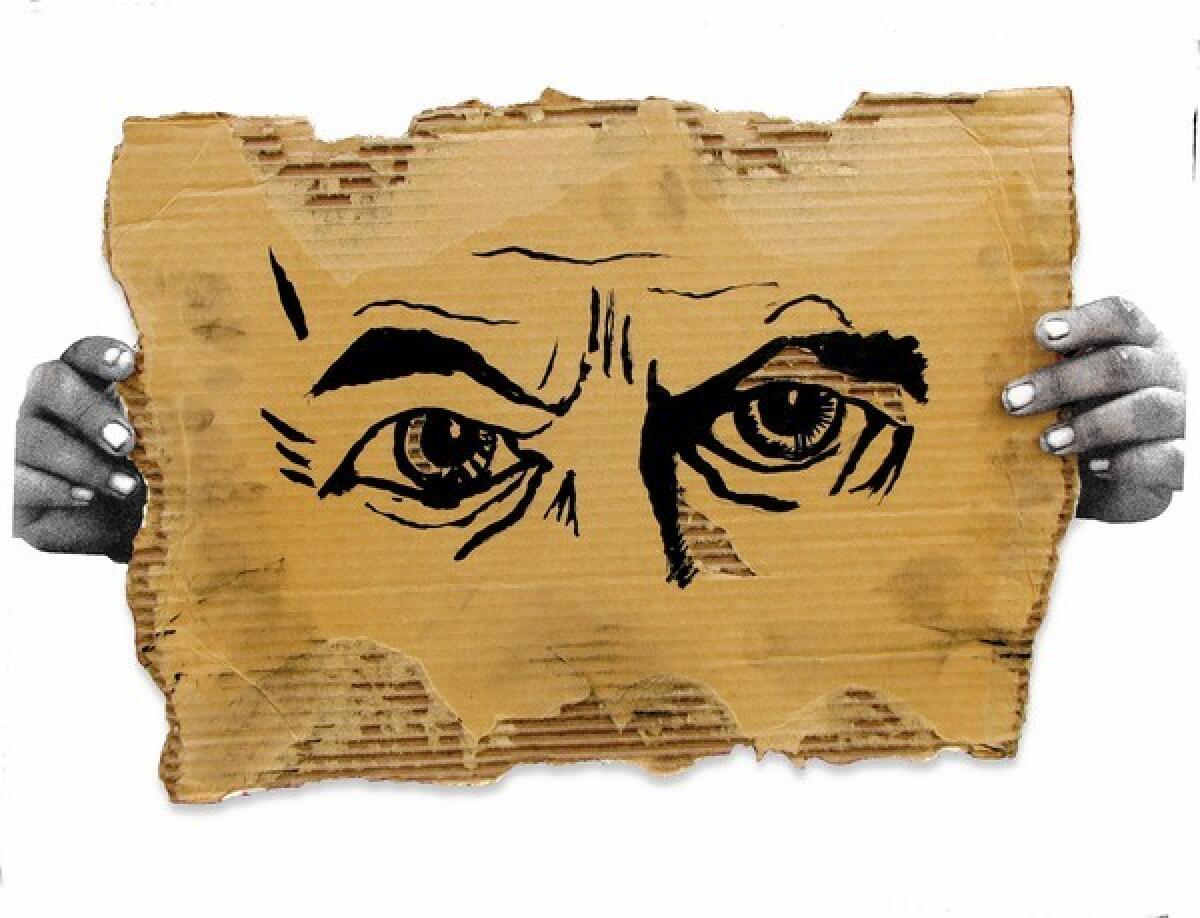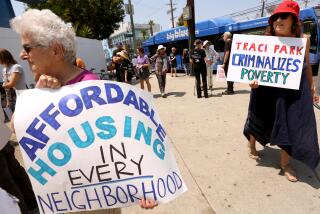Letters: Despair and the mentally ill homeless

Re “Have you seen my brother standing in the shadows?,” Opinion, Jan. 5
Sarah Dusseault’s story about her brother’ struggle with mental illness and homelessness was heartbreakingly familiar.
My sister with schizophrenia has been repeatedly homeless, jailed and hospitalized. We were fortunate, though, to have guardianship and conservatorship awarded in New Mexico. There is no guarantee of stability, but we have some leverage to help her.
Simply from a state expense view, keeping our mentally ill out of jails and hospitals saves money. But from a human standpoint, who is better to help, support and advocate for the broken? We definitely need the state’s help, but its workers have office hours and large caseloads. The state needs the families’ help too. Can’t we all just work together?
Dusseault’s efforts to help her brother sound tireless.
I know she can never give up. I hope her brother finds someone, maybe in group therapy, who understands loneliness.
Diane Wetherbee
Dana Point
Dusseault’s estimate of $1 million in public money spent in vain on her schizophrenic brother in just one year is an eye-opener.
The decision made decades ago in California to empty our mental hospitals and basically dump sick people on the streets has led to this mess. Community mental health clinics and counseling to take care of these people have clearly not worked.
Homeless advocates have fought long battles against committing these people to mental hospitals where they actually could be taken care of. Being in an institution would mean that people like Dusseault would know that her brother was not in jail or wandering lost on the streets — and was instead safe and taking his medication.
Robert Newman
West Hills
For those of us who have a loved one with schizophrenia or bipolar disorder, Dusseault’s poignant essay was hauntingly familiar.
It is difficult enough to help a child with a mental illness, but when he reaches adulthood, forget it. The courts and other parties, as Dusseault demonstrates, tend to favor his rights, to the frustration of his family.
Despite the incredible setbacks that Dusseault’s brother has encountered, he “never gives up hope that he will find a girl/job/apartment.” That line put a lump in my throat and a tear in my eye.
How can we sleep at night when our homeless brothers and sisters with mental illness wander the streets, withering away, as they rifle through trash cans for food?
David Tulanian
Los Angeles
ALSO:
More to Read
A cure for the common opinion
Get thought-provoking perspectives with our weekly newsletter.
You may occasionally receive promotional content from the Los Angeles Times.










